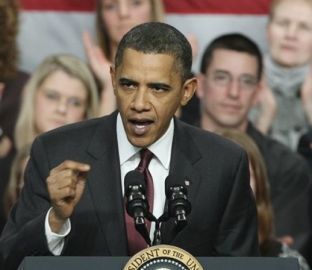US urged to intervene in Sudan’s 2011 referendum – ICG
By Julius N. Uma
May 31, 2010 (JUBA) — Sustained and high level leadership from the international community-including the United States is essential in ensuring that events leading to Sudan’s referendum unfold peacefully, David Mozersky, Horn of Africa Project Director at the International Crisis Group said.

In a mouth-watering testimony delivered before the Subcommittee on African Affairs, Senate Committee in Foreign Relations last week, Mozersky said the forthcoming referendum will be a critical moment for Sudan’s future to be reshaped, for better or for worse.
Describing the US as the guarantor of the 2005 CPA, and the author of the Abyei Protocol, Mozersky said the U.S. government has a unique and important responsibility to help provide leadership and support to the people of Sudan in the months and years ahead.
Analysts widely contend that southerners will vote for secession, if the vote is free and fair.
However, as the referendum date draws closer, pressure is still mounting on issues that need to be resolved, including resolving the north south border dispute that has raged on for decades.
According to political analysts, failure to address some of these contentious matters could sow the seeds for future conflict and governance and capacity challenges in the South that could be exacerbated post-referendum.
“There is a genuine risk of a return to large-scale North-South conflict in the run-up to the referendum and the fault lines for the coming months are becoming clearer,” the testimony entitled, “Assessing Challenges and Opportunities Facing Sudan” party reads.
Over the past years, relations between the ruling National Congress Party (NCP) and their southern counterparts, the Sudanese Peoples Liberation Movement (SPLM) have been characterized by mistrust, with both accusing the other of delaying the implementation of the CPA.
As such, political analysts contend that the response of the U.S. Government and the broader international community will be critical towards seeing that the referendum is held on time per the terms of the peace agreement.
Already, the SPLM is opposed to any form of negotiations that are likely to delay the conduct of referendum for possible southern independence.
Pagan Amum, the SPLM Secretary General last month told a high-level delegation at an African Union meeting that his party would not accept any negotiations on the referendum, earmarked for January 2011.
(ST)
